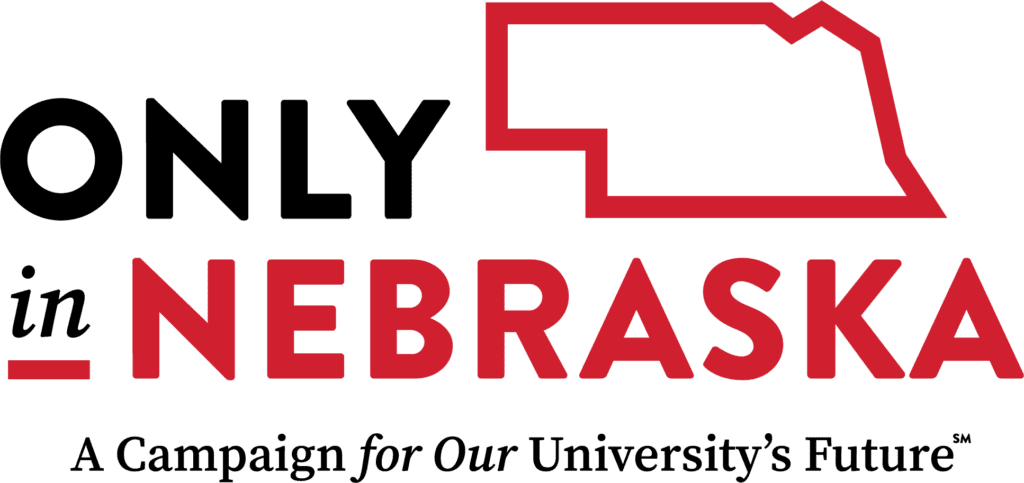Chase Glover Plants the Seeds for Future Ag Career at NCTA
By Connie White
Chase Glover didn’t think college was for him. He knew he wanted to work in agriculture, but he wasn’t big on school. So, he figured he would go straight into the workforce after graduating from high school in Grand Island, Nebraska.
His plans changed after his high school Future Farmers of America adviser suggested he check out the Nebraska College of Technical Agriculture (NCTA). He traveled to Curtis, Nebraska, and took a tour. What he saw on campus changed Glover’s mind about college and planted the seeds for his future career.
“My love for NCTA has just grown so much over the past year and a half,” said Glover, who will graduate in May with an Associate of Science degree in agronomy. “I think it’s great that Nebraska has a school dedicated to straight-up agriculture and animal science.”
This fall, 232 students were enrolled in NCTA, a two-year college that is the rural arm of the University of Nebraska System. NCTA leaders seek to increase enrollment to 500 students over the next 10 years to address workforce needs in Nebraska’s agriculture sector. A key piece of that plan involves modernizing facilities on the historic campus in southwest Nebraska to aid in recruiting and retaining more students.
Omaha philanthropists Barbara and Wally Weitz have made a $6 million challenge gift toward a $12 million project to create the Student Success and Activity Center. The project will renovate and expand the student union, known as The Barn, originally built in 1917, to create a new student union on campus with technology-enabled study spaces, a place to hold social events and an accessible dining hall.
Fundraising is underway for the remaining $6 million, with work to begin after those commitments are in place.
Barbara Weitz has called NCTA a “too-well-kept secret south of North Platte.” The college — with the slogan “Small Campus. Big Impact.” — is ranked by Forbes Magazine as among the top 30 trade schools in the country.
NCTA Dean Larry Gossen, Ph.D., said Aggie graduates are in high demand. In surveys, 100% of graduates report being employed in their field of study or planning to go back to the family ranching or farming operation or to continue their education at another institution.
Agriculture is the No. 1 industry in Nebraska, with nearly one in four jobs in the state related to the industry, and it accounts for more than one-fifth of the gross state product. But without the workforce to fill jobs in all aspects of the industry, the ag economy is at risk.
“Every field of agriculture is looking for NCTA graduates. There are shortages across the board in agronomy, animal science, ag sales, veterinary technology and irrigation technology,” Gossen said. “We have more job openings than we have graduates to fill them.”
At NCTA, Gossen said students receive hands-on, applicable instruction that prepares them to advance in ag industry jobs or to become a partner in their family operation.
“NCTA provides a skilled workforce to rural Nebraska,” he said. “Students enjoy small-town living, and many plan on returning to rural Nebraska to begin their careers.”
Glover said NCTA has opened doors and prepared him for the “real world” of agriculture. In his agronomy major, he engages in the latest plant and soil science while learning about water resource conservation and production techniques. To gain hands-on experience, he scouts crops in the agronomy farm lab on campus, looking for stressors on plants throughout their life cycle, from seeds in the ground to fully grown plants; crunches the numbers on the cost of inputs such as fertilizer; and learns about irrigation.
“I just like looking at the plants,” he said. “I know I sound like a crop nerd.”
Glover also is a member of NCTA’s award-winning crops judging team and president of the Farm Bureau Club. “I love working in small groups and one on one with my professors,” he said.
After he graduates, Glover plans to complete a second internship as a crop scout at Long Agronomics in Minden, Nebraska, where he spent last summer learning about crop diseases and their impact on plants.
“I didn’t really have a background in agronomy before coming to NCTA,” Glover said, “and now I feel like I’m prepared to go out into the world.






